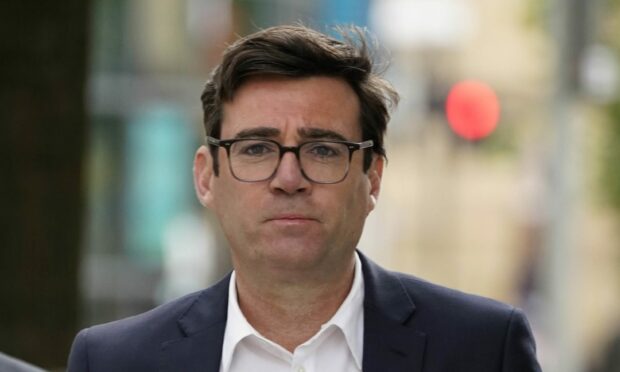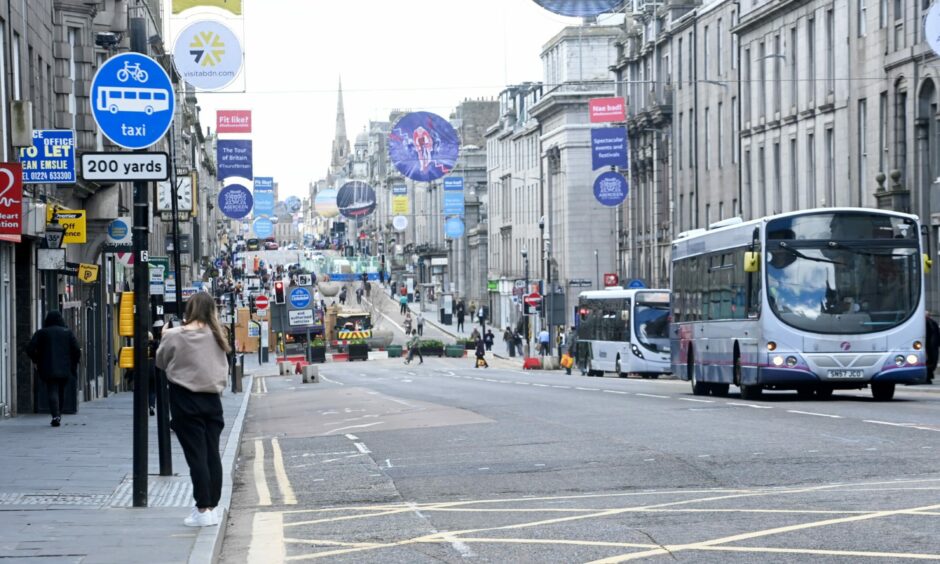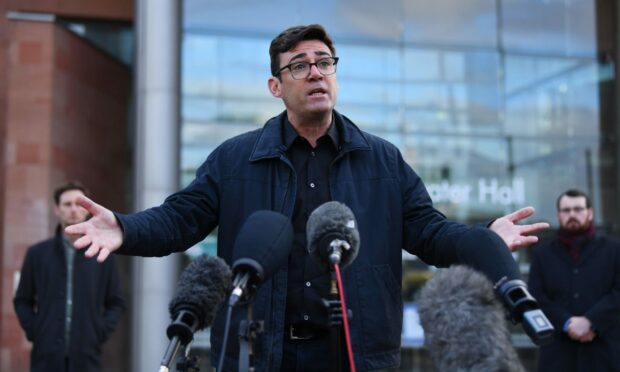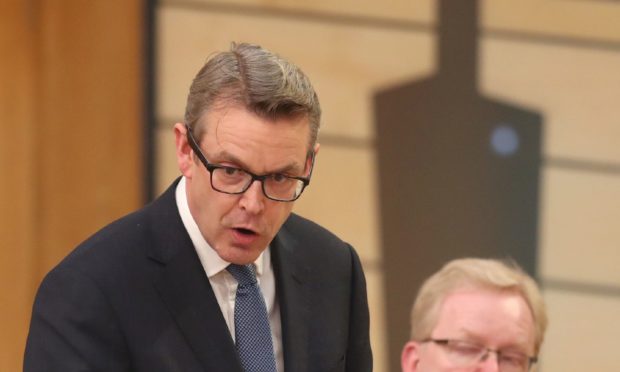Aberdeen could benefit from a directly-elected mayor after years of “neglect” from central governments in Edinburgh and London, according to Labour’s Andy Burnham.
The Manchester mayor was hailed as a strong voice for his city two years ago when he stood up to Boris Johnson’s Tories over Covid lockdown funding.
Now he’s backing Scottish Labour’s calls to introduce similarly styled local leaders north of the border.
But would it be popular?
What is Labour proposing?
At the moment, council bosses either come from the party with the most seats or are agreed in coalition deals.
Labour proposes local authorities and wider regions should have the power to decide if they want their own elected mayor or provost.
This would mimic English cities such as London, Birmingham and Manchester which all now select their leaders in a presidential-style vote.
While Scotland’s councils do have provosts, broadly equivalent in title to a mayor, the role is largely ceremonial.
Why does Andy Burnham want change?
The Manchester mayor believes directly elected local leaders can be a more powerful voice for their local communities.
He said cities outside Edinburgh such as Aberdeen often require “different solutions” to political problems than those prescribed by Holyrood.
Mr Burnham claimed the north-east of England has “got more powerful” since regions first started electing their own leaders.
He told The Courier: “It has got our voice heard more. Often one policy from a national level isn’t right for everybody everywhere.
“A place like Dundee, or Aberdeen – they are the places that really need that extra voice, because sometimes they can be neglected both by Westminster and Holyrood.”
He added: “We do need to empower people to do what’s right for them in their area. A new form of devolution could have resonance here.”
Speaking in Glasgow, Mr Burnham warned the UK needs to move away from a political model which centres decision-making in London or Edinburgh.
The Manchester mayor was a prominent MP before entering local government, serving as health secretary under Gordon Brown and running against Jeremy Corbyn for leader in 2015.
But he admitted he “fell out of love” with Westminster before stepping back and believes local communities have been “disempowered” over the years.
How would it work?
Scotland is divided into 32 different local authorities, some of which work closely together on regional issues.
Mr Burnham is not only mayor in the city of Manchester, he acts as leader for the wider region which takes in 10 different councils.
If a similar approach were adopted in Scotland, could an Aberdeen provost or mayor serve the wider north-east area to have a bigger voice?
Mr Burnham sees no reason why this could not be the case if it’s what local voters want.
He said: “What I do know is that it’s been to Greater Manchester’s benefit that the ten individual local authorities came together and said ‘you know what, we’re going to work as one and get our voice heard more’.”
The Labour politician cited a new policy to cap bus fares at £2 as an example of how his administration was helping local residents.
What do others say?
Former Tory MSP Adam Tomkins, who is a professor at Glasgow University, previously said cities need strong “champions”.
He believes Scotland should aim to emulate successful examples of mayoralties south of the border.
Labour councillor and former provost Barney Crockett backs the idea and wants Aberdeen to have more “visible figures” in charge.
He said: “I think we have suffered a lot since the end of the Grampian region, particularly more recently.
“We haven’t had very visible leading figures speaking up for the city. Aberdeen really needs that.
“You can just see the impact that somebody like Andy Burnham has had. He’s known, he’s recognised on a UK basis, not just a local basis.”
However, Labour’s ex-Aberdeen council leader Jenny Laing was sceptical that direct elections for local leaders were needed.
She said the focus can soon be geared too much towards the “personality” of one individual.



